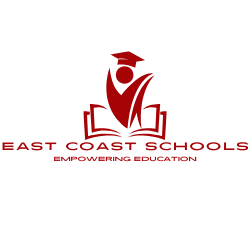Large lecture classes are a reality at many universities, significantly larger East Coast schools like Penn State, NYU, and UMass Amherst. While these classes can feel overwhelming, plenty of students have navigated them successfully—and so can you! You’ll thrive even in the most extensive lecture halls with the right strategies.
1. Attend Every Class—Even if Attendance Isn’t Mandatory
Skipping lectures might be tempting, especially when no one notices, but regular attendance ensures you stay on top of the material. Professors often share essential announcements, exam hints, and clarifications that aren’t in the slides.
Pro Tip: Sit near the front to stay engaged and avoid distractions.
2. Build Relationships with Professors and TAs
In large classes, it’s easy to feel anonymous. But professors and teaching assistants (TAs) are there to help. Attend office hours to ask questions and discuss the course material. This interaction helps with your understanding and can lead to future letters of recommendation.
3. Form Study Groups with Classmates
Collaborating with peers allows you to share notes, fill in gaps, and stay motivated. Study groups are also great for exam preparation, as explaining concepts to others reinforces your understanding.
4. Stay Organized with a Planner or Digital Tools
With hundreds of students in a class, deadlines can surprise you. Use a planner or digital calendar to keep track of lectures, assignments, and exams. Apps like Google Calendar or Notion can help you stay on your schedule.
5. Participate Actively, Even in Large Classes
Engaging with the material helps you stay focused. Some professors offer clicker questions, online polls, or discussion boards to encourage participation. Take advantage of these opportunities to enhance your learning.
Bonus Tip: Don’t be afraid to ask questions during class or through follow-up emails to the professor.
6. Record Lectures (with Permission)
Many students find it helpful to record lectures to review material later. This is especially useful if you must revisit complex topics or miss a critical point. Some professors make recordings available to students through Canvas or Blackboard.
7. Use Campus Resources for Extra Help
Take advantage of academic support services like tutoring centers, writing labs, and peer mentoring programs. Many schools also offer supplemental instruction (SI) sessions—review workshops led by upperclassmen who have taken the course before.
8. Practice Time Management
Large classes often require more independent study since you may not get as much individual attention. Break assignments into smaller tasks and set deadlines to stay on track. Balancing these responsibilities with other activities is crucial to succeeding in significant lecture settings.
9. Learn How to Take Efficient Notes
With fast-paced lectures, developing an excellent note-taking strategy is essential. Use methods like the Cornell Note-Taking System or outline format to organize information effectively. Some students also use tablet apps like OneNote or Notability to make digital notes.
10. Don’t Be Afraid to Ask for Help
If you struggle, reach out early—whether to your professor, TA, or academic advisor. Universities offer plenty of support, but it’s up to you to seek it out.
Conclusion
Participating in large lecture classes is about staying engaged, organized, and proactive. From attending class regularly to building relationships with faculty and classmates, small actions can make a big difference. With these tips and strategies from students who’ve been through it, you’ll be well-prepared to thrive in any big lecture class.
Need more personalized academic advice? Contact us today for expert college counseling services designed to help you succeed!
